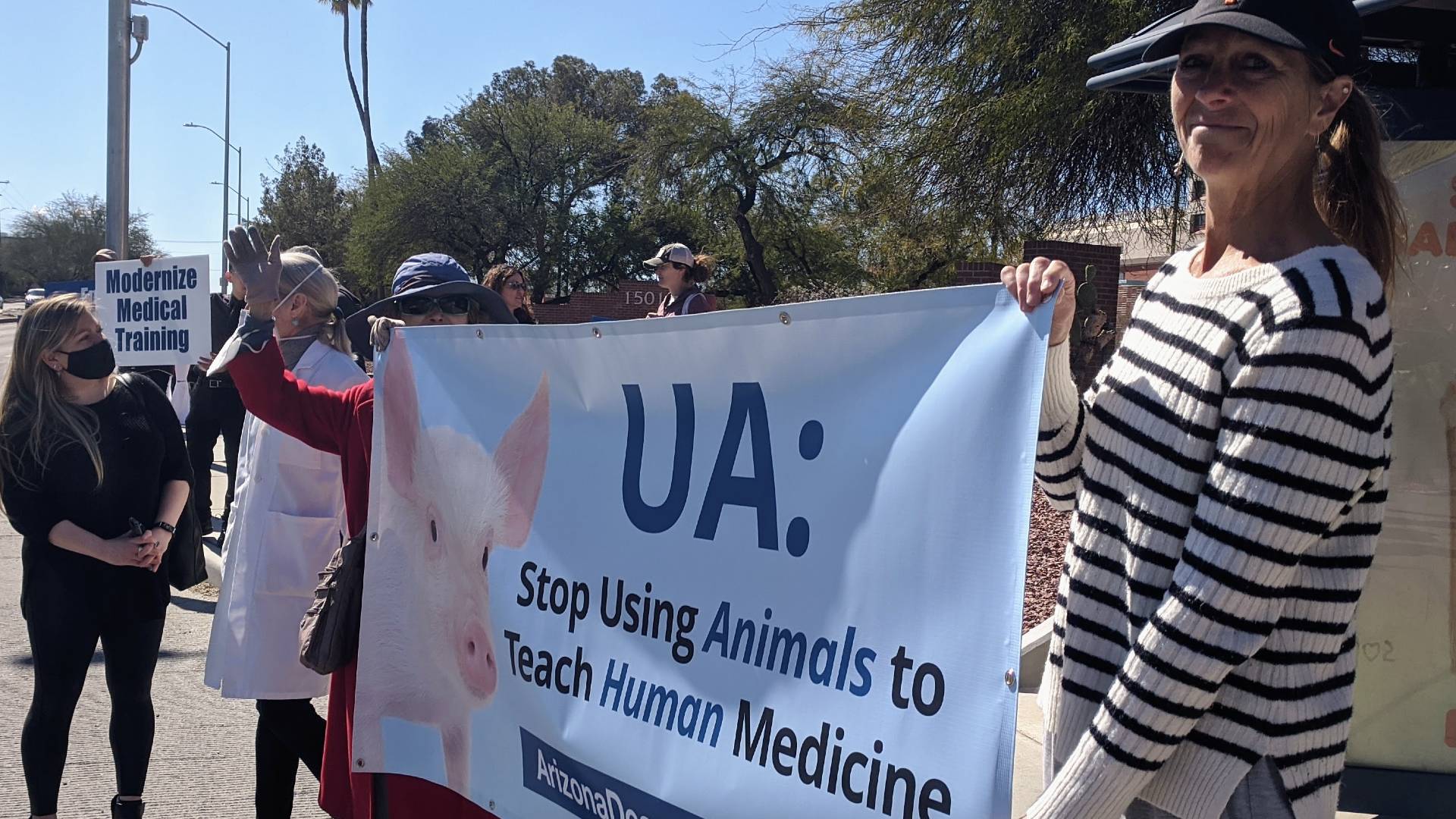National Medical Ethics Group Praises University of Arizona for Replacing Animals in Surgery Training
Change Follows Years of Advocacy and Public Pressure

TUCSON, Ariz.—The Physicians Committee for Responsible Medicine—a nonprofit with more than 17,000 doctor members—today announced that the University of Arizona College of Medicine – Tucson has replaced animals in its surgery training program. The group recently received confirmation from U of A faculty, but it first urged the medical center to replace animals in 2020.
U of A’s decision means that general surgery residents will no longer cut into live pigs as part of their training. Instead, they will now learn using methods that replicate human anatomy, like medical simulators and cadavers—joining 222 other medical centers across the U.S. and Canada that have replaced animals in surgery programs or never used animals in the first place. Stanford University, Yale University, the Mayo Clinic, and every other surveyed program in Arizona—including U of A’s Phoenix residency—all train without animals.
"This is a victory for the animals and the residents, who will now receive 21st century medical training," said John Pippin, MD, FACC, director of academic affairs at the Physicians Committee. "We applaud the university for making the humane and educationally correct choice."
The Physicians Committee began writing to U of A faculty in 2021 about this issue. Since then, the organization led a comprehensive campaign that included:
- Filing a federal Animal Welfare Act complaint in 2022
- Holding a physician-led demonstration on campus in 2022
- Delivering more than 47,000 emails to U of A leaders from people across the country
- Sending a letter from 163 physicians to Governor Katie Hobbs and the Arizona Board of Regents,
- Purchasing billboards in Tucson with messages like “Stop Using Animals to Teach Human Medicine”
The campaign was also supported by local allies, including Better Piggies Rescue, which offered to provide sanctuary to any animals released by U of A.
The Physicians Committee points out that scientific studies have shown that nonanimal methods produce expert surgeons. A 2020 U.S. military study found that simulators improved trainees’ response times and reduced medical errors. Additionally, research has demonstrated that simulators and human cadavers offer comparable or superior results to animal-based training in building surgical competence, boosting confidence, and preparing residents for high-stress environments.
To speak with Dr. Pippin, please contact Reina Pohl at 202-527-7326 or rpohl [at] pcrm.org (rpohl[at]pcrm[dot]org).
Media Contact
Reina Pohl, MPH
202-527-7326
rpohl[at]pcrm.org
Founded in 1985, the Physicians Committee for Responsible Medicine is a nonprofit organization that promotes preventive medicine, conducts clinical research, and encourages higher standards for ethics and effectiveness in education and research.








